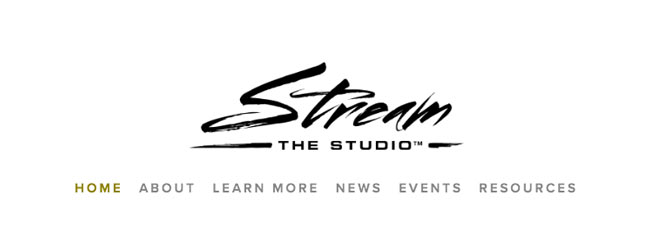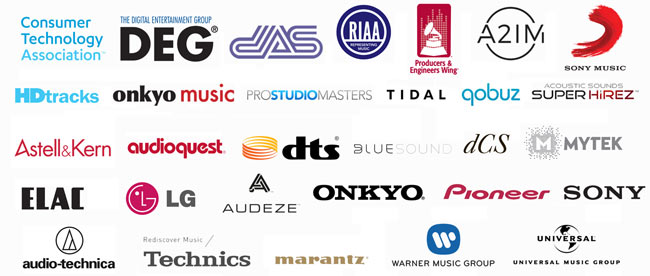Whom Can You Trust?
Recently, I wrote about the immense amount of misinformation in high-end audio. Some of the information is deliberately misleading — the cable companies and audiophile magazines and websites are the worst offenders — while other “experts” are factually incorrect because they have a vested interest in convincing you of their position. And the explosion of Facebook pages, blogs, podcasts, and videos presenting subjective opinions as hard facts are at a minimum disconcerting and at most fraudulent. I think we all recognize that a lot of the online information is nonsense and doesn’t benefit newbie or experienced audio enthusiasts. In the recent blog, I focused on a single high-end audio FB page, a single manufacturer of “exotic” accessories and overpriced cables, and a fellow entrepreneur trying to convince readers that gold CD-R are somehow superior to regular CDs but they’re not the only ones guilty of hyperbole in audio.
But the responses I received from readers (both public and private) shed additional light on other “more professional” sources of information and “expertise”. The first resource was included in a post by a long time reader, Kit Kimes, and came as somewhat of a surprise. It’s been several years since I was booted out of the CEA — now CTA. The executive team of high-end audio board didn’t think my private and public refusal to endorse their hi-res audio marketing campaign was the sign of a team player. I was “uninvited” from the group after 6 years of service.
Stream The Studio

But the consortium of organizations promoting the “hi-res audio” hoax hasn’t thrown in the towel yet. They’ve put together a new web site called StreamTheStudio.news. The site is slick and contains lots of information, graphics, logos, testimonials, and professionally-produced — and expensive — videos. You can check it out for yourself, but it reminded me of the “buyer’s guides” that audiophile magazines issue from time to time. You know the ones — TAS’s “Buyer’s Guide to Cables, Power Products, Accessories, and Music” is a great example. These publications are entirely sponsored by the companies featured inside and the TAS writers write glowing — and usually absurd — “reviews” about all of the products that paid to be included in the guides (“Power factor correction reportedly provides improved dynamics and soundstaging for your audio!”)
The StreamTheStudio.news site is all about “hi-res audio” and “hi-res music” (no, they are not the same!). On the opening page, they invite readers to “join the high-resolution revolution” and feature a parade of Grammy-winning or Grammy nominated engineers raving about the “mind blowing” fidelity of hi-res audio. The usual suspects are there: Gavin Lurrsen, Chuck Ainlay, Ed Cherney, and Frank Filipetti. I know all of these engineers. In fact, I ran into Ed Cherney just a couple of weeks ago at Canter’s Deli (I was having lunch with Robert Margouleff of Stevie Wonder fame!) And they all strongly endorse hi-res audio and hi-res music. No big surprise. But none of them work on audiophile fidelity recordings! They churn out amazing productions but they have to meet the expectations of the labels that hire them.
There was a time when I was included in these promotional opportunities. As a member of Producers and Engineers Wing of NARAS, I was invited to present some of my real high-resolution recordings at a NARAS/DEG sponsored Jungle Studios event a few years in NYC and I was regularly included on other “hi-res audio” panels. But as I no longer tow the line, I’m not invited and I’m not notified of the new promotional opportunities. Can you imagine giving equal time to someone that has an opposing point to view — and can back it up with objective facts? That won’t happen. So are the professional audio engineers featured in the videos on the StreamTheStudio site “experts” or not? They certainly have a great deal of expertise and experience engineering and producing hit records. There’s no doubt about that. But I don’t believe any of them could pass the HD Audio Challenge that I offered some months ago. Really. They can wax poetically about the “transformational” power of hi-res audio in the videos but I doubt any of them could identify a CD downconversion of one of my 96 kHZ/24-bit originals.
It’s also curious to see the logos that are behind the StreamTheStudio site. None of the companies I saw actually deliver hi-res audio. In the section labeled “START LISTENING IN HI-RES AUDIO TODAY”, they list six download/streaming services. Very few of the tracks offered on those sites were recorded using high-resolution equipment. I also found it funny that they use the term “hi-res audio”, when it only applies to the hardware — not the content.

Clearly, buying your way into a promotional publication or website doesn’t guarantee you’re an expert or to be trusted. I don’t trust any of the companies listed above because I’ve found misinformation presented by each one.
AudioQuest CEO Email
I received an email from William Low, the CEO of AudioQuest, regarding the YouTube video posted by an AudioQuest retailer in Texas comparing various HDMI cables. That post holds the record — by far — as the most read blog post I’ve ever posted on this site (currently over 37,000 views – you can read it by clicking here). Bill asked me to correct a couple of misstatements I made in the recent blog — and I did (it was a retailer that was responsible for the video not AQ). The basic premise presented in the video was that the more expensive the cable, the better the fidelity. The video was not produced by AudioQuest and Bill denies any knowledge of the fakery behind it but was aware that it had been posted on YouTube for many months. It’s unlikely we’ll ever know who directed or decided to increase the amplitude and lessen the high frequency roll off as each more expensive cable was demonstrated. But the critical question is why the local distributor or production house felt it was necessary to manipulate the results. Could it be that they compared all of the spec-compliant HDMI cables and couldn’t detect any sonic differences?
I did find it interesting that Bill told me, “AudioQuest has started posting digital difference files of some of the audible differences that are questioned in our community.” I haven’t looked for this information on the AQ community site but see it as a step towards validation of claims made by cable companies and others. It it impossible to imagine how a digital cable will do the appropriate DSP to “enhance” fidelity instead of producing a digital dropout but oh well.
In general, you should be very suspicious of all high-end audio advertising (print, video or otherwise) — especially for cables, accessories, and power products. In my experience, they are willing to do or say anything to convince you to purchase their products.
There are too many people/site spewing incorrect information to enumerate them all on this blog. I just looked at FB and saw a Forbes article extolling the move to “high-fidelity streaming”. Yes, moving away from MP3, lossy compression is the right thing to do, but stating, “the higher you go with audio file resolution, the better it gets” is patently untrue.
And then there’s the battle going on between Ethan Winer, the author of “The Audio Expert” and Paul McGowan of PS Audio. As many of you know, Paul has written a lot about high-end audio and lately he’s been producing a daily video where he talks about current topics in audio. I know Paul and regard him as a knowledgeable person in the audio world. I’ve visited him in Colorado and seen his operation AND I’ve owned some of his equipment over the years. But I have to agree with Ethan on this one. Paul says things that aren’t true. I’ve written about some of his misinformation (and I’ve also chastised Ethan for his high-resolution test). Again, it comes down to trust. In general, you want to stay away from statements made by manufacturers, magazines, editors, reviewers, buyer’s guides, and videos that benefit directly from the information they provide. If a company like SR gives a $20,000 power cord to a video reviewer, do you really expect the reviewer to tell his/her audience that it’s snake oil?
I’ll write about who you can trust in a future post.


Mark
All of *this* is about “building a business” and not about accumulating facts.
You are not to interfere if you are not behind the effort to “build,”, please.
Barry
You’re right…it’s about doing business no matter what the facts. How is that helpful to the consumers? It’s not. So the myths and hoaxes continue.
Perfesser, I think I forgot to tell you that I would prefer the book, and the disks. With so much content online, I regularly get the Jones to look and feel a real book. Thank goodness for libraries!
Regards,
T
“I’ll write about who you can trust in a future post. ”
… with apologies to “X Files” …
“Trust No One”
There are experienced and skilled people providing information and opinion. You just won’t find many of them working for magazines, websites, manufacturers, organizations, record labels etc.
I do not understand statements like “Audio quality is not measurable”. It is similar to arguments between science and religion which basically comes down to math/measurement vs faith. I consider audiophiles as being religious people who’s believe system is based on faith like e.g. vinyl record have some non measurable quality that makes them superior to digital records. It is impossible to argue with people who’s arguments are solely based on faith.
There are very strong parallels between religion/faith and audiophilia. The myths in audiodom are taken without facts to back them up and persist in spite of being thoroughly refuted. I have no problem with people expressing a subjective opinion about a specific piece of equipment or cable, but then to discount technological and physical facts goes too far.
In two months it will be 45 years since I went from being an audiophile to being an audio scientist and engineer. That moment happened by complete surprise when I suddenly understood how sound and acoustics works. That changed everything for me. I understood for the first time exactly what I was hearing. I also understood how to engineer sound, to mold it and shape it the way I wanted to. 45 years of experimentation and I am satisfied with what I have done. I’ve only built two versions of this strange machine and neither cost over $3000 to build. Of course some of the equipment was bought used. The current version uses two main speakers enhanced with a lot of inexpensive tweeters for very wide dispersion. Three stereo amplifier with no more than 300 watts total, 16 surround speakers, Several equalizers, and three digital processors. No special wires were used. They are the kind that would have been used in the 1960s. The equipment would be called “mid fi” by audiophiles at best. The DSPs were infringements on my US Patent. Only one such model was ever made. It has a couple of inherent design flaws built into its firmware. It took me several years to solve them with workarounds.
This is a complex machine. It’s based on a lot of math. It recreates the effect of very large room acoustics convincingly. That means convincing reverberation, envelopment, a sense of space, and what you’d call a very wide and deep sound stage which was not one of its goals. It can also reproduce the tonality and dynamics of live music. There is no one right reconstruction of the original sound. However, there are qualities of that sound due to the properties of the sound field it reproduces that are equivalent if not scientifically identical.to live sound.
I have nothing to sell and no advice to give. All I can say is don’t believe anything anyone tells you. It’s all wrong. The equipment you can buy no matter how expensive or who makes it doesn’t come remotely close to being able to do what it was originally intended to. That problem has beaten this industry to a pulp. They say it can’t be done. I say THEY can’t do it. And once my patent was issued they had no interest in it. I watch all of them like a dog chasing its tail with amusement.
I always appreciate your comments but to say the all information provided by anyone is wrong would include you too! Your goal of recreating the sound of a live performance is not the goal of most recording engineers, equipment designers, and acousticians. There are a variety of different experiences that have value in audio engineering and reproduction.
On the AQ letter, where Bill Lowe mentions posting files so you can hear the difference in their cables, where are such files posted?
He mentioned he’s done some posts about the digital differences but I didn’t dig heavily into his site to find some examples. If you find any, please let me know. It would be very interesting.
Ethan is a God among mortals. Paul is a shyster. You can “chastise” Ethan all you want, he knows more than you, a lot more. Seriously,.. WAY more..
I have a great deal of respect for Ethan, have his book (and have read it), and count him among my FB friends. His experiences parallel mine to a large degree although I believe my experience as a practicing audio professional in the area of high resolution exceed his (I have produced the largest catalog of real HD audio recordings on the planet). We have somewhat different skill sets. I was very surprised to have to tug at him about his HD challenge files…that test utterly fails because of the source content and his admitted attempt to “fabricate” ultrasonic content in the standard-res versions. As a practicing audio engineer, experienced electronic repair technician, computer scientist (MS), professional musician (guitarist), and composer (Ph.D.), I would put my credentials up against his any day of the week. You obviously feel differently. You’re entitled to your opinion. Thanks.
Ethan seems like a great guy, and he’s always very helpful, but I think he sometimes falls into the “objectivist” trap that we already know everything there is to know about audio, so there’s no longer any need to do further research or experimentation. A manufacturer, I think it was the head of Ayre, who also seemed at least somewhat scientifically minded and he disliked Stereophile, said about the objectivists that they claim to be scientific minded, but are the most stubborn people and the least interested in doing tests and experiments, which is what science is all about. And I think the guy had a point. We should always test things about, although some things are superfluous to test yet again, although yet another test showing no difference just supports the objectivists position. So my position is usually “sure, let’s test it properly to get it over and done with instead of keeping on talking about it :-)”.
But there are a few people in the objectivist camp who are more stubborn than Ethan for sure. I think Ethan has been trying to argue with the subjectivist camp for close to 20 years, with no result, and I think he’s starting to become tired. I’ve only been arguing with the subjectivists for 3-4 years, and I’m already becoming tired :-).
It’s “whom”, you know.
Yep, I think I would agree…doing a little research, a couple of sites said it was acceptable either way.
In truth, most information related to home audio cannot be trusted at all. The whole field is filled with misconceptions and outright lies. One has to look very hard for information from rational scientists and engineers. This state of affairs has two causes. First, hobbyists and even mass market buyers want to believe they are buying something that is superior, so they demand to be lied to. Doing so is quite easy because most people–including high end magazine writers no little about audio and lack critical thinking skills. They rely on their intuition, which is notoriously misleading. Second, the high end subjectivists have seized the field, supported by manufacturers who know they can make more money by misleading people. Finding correct information involves quite a bit of effort that is going to result in many people feeling bad about their expensive equipment. Most fans are not going to put forth the effort. Search for “The Audio Critic” and read the later issues, but be aware the even this is not entirely correct.